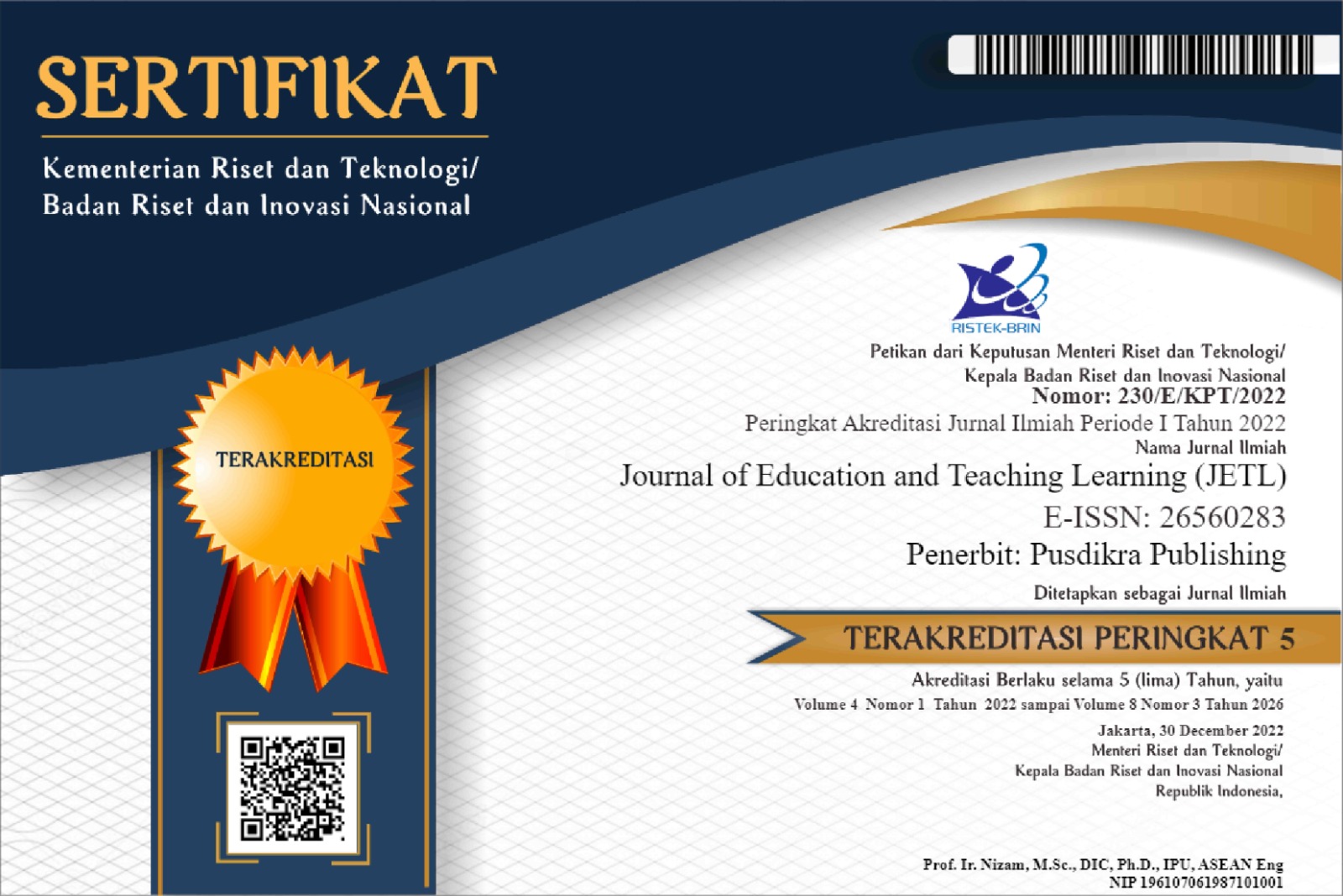Culturally Based School Supervision: A Literature Review on Its Impact in Realizing High Performing Schools
DOI:
https://doi.org/10.51178/jetl.v7i3.2534Keywords:
Supervision, School Culture, Educational QualityAbstract
This study explores the role of culture-based educational supervision in improving the quality of learning and teacher professionalism. Supervision is not merely an administrative instrument but also a strategic process that integrates school culture, values, and local wisdom into educational practices. Using a qualitative literature review method, this research analyzes 13 selected articles published within the last five years, focusing on themes such as supervision strategies, school culture dimensions, and their impact on school performance. The findings show that culturally responsive supervision positively influences teacher competence, motivation, and professionalism by aligning monitoring practices with the norms and values embraced in schools. Supervision conducted collaboratively and contextually fosters a conducive school climate, encourages professional dialogue, and enhances teacher engagement in developing relevant learning materials. Moreover, culture-based supervision strengthens school culture, promotes inclusivity, and supports the creation of safe and meaningful learning environments. It also contributes to literacy improvement, multicultural understanding, and character development. However, challenges remain, including the limited cultural sensitivity of some principals, inadequate training, and the lack of clear operational guidelines. Overall, culture-based supervision proves to be a strategic necessity for realizing high-performing schools that are academically strong, socially cohesive, and adaptive to contemporary educational challenges.
Downloads
Published
How to Cite
Issue
Section
License
Copyright (c) 2025 Diva Erlina Septiani, M. Jaya Adi Putra, Fadly Azhar

This work is licensed under a Creative Commons Attribution-ShareAlike 4.0 International License.




